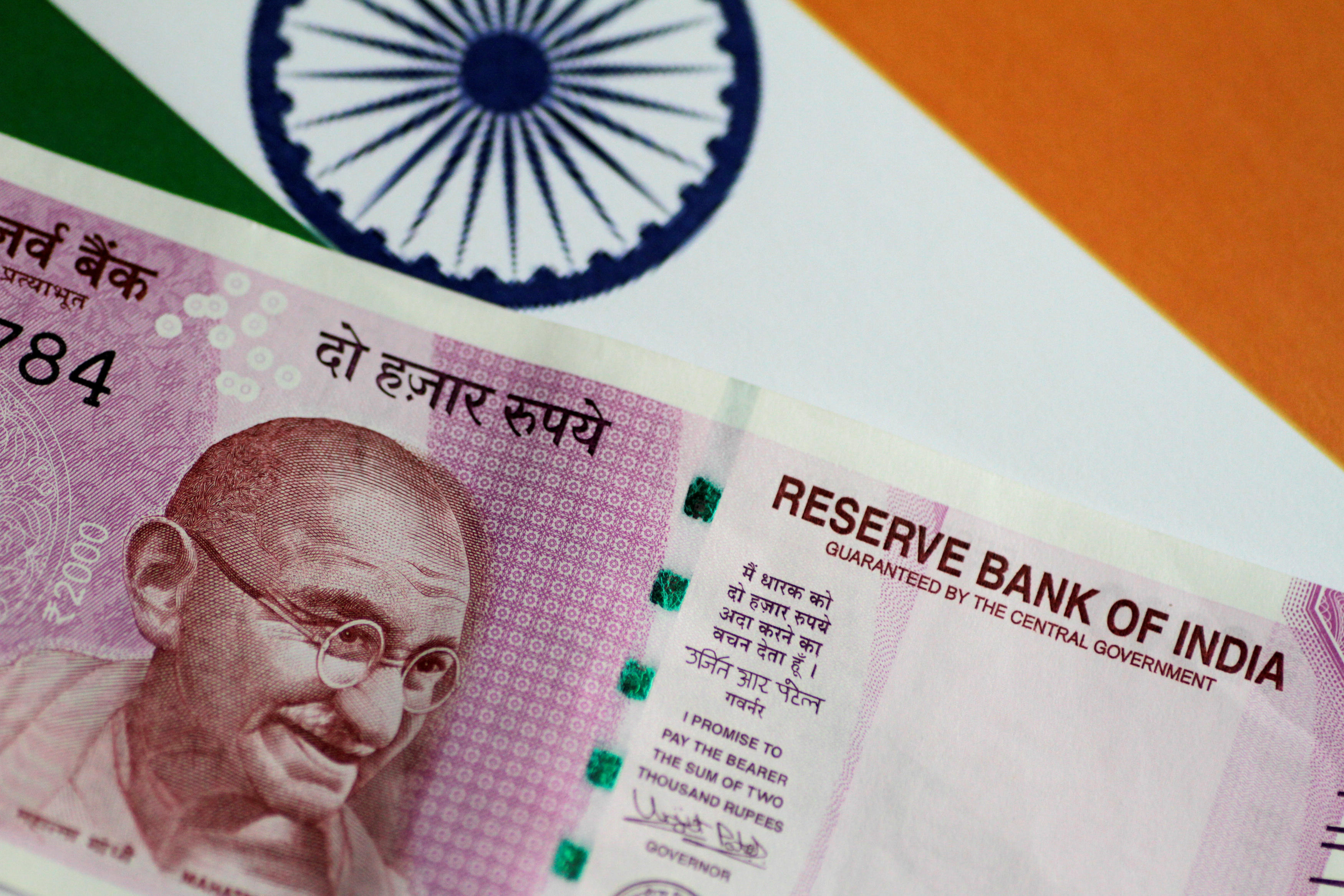The Indian rupee declined on Tuesday, surrendering the strong gains of the previous session, as importers bought dollars and traders ignored the largely positive sentiment in the broader markets.
The rupee fell to 82.8475 per U.S. dollar, compared to its previous close of 82.65.
The currency had notched its best trading day in about two weeks on Monday when the domestic cash dollar market was shut.
On its resumption on Tuesday, importers, including oil marketing companies, bought dollars, which weakened the currency, a dealer at a bank said.
However, traders have cited the 82.85-82.90 range as a strong support zone for the currency.
Stronger oil prices also played a part in the rupee's weakness, said Sudarshan Bhattacharjee, principal economist at fixed income-focussed fintech Yubi.
Oil has gained sharply, with Brent crude near $85 per barrel on hopes of cuts to U.S. energy production caused by winter storms, as well as a cut in Russia's output.
Higher oil prices and a weaker rupee are concerns for India's widening trade deficit, Bhattacharjee added.
"For fiscal 2023, the trade deficit may widen to $300 billion, which is about 8.7% of gross domestic product."
Risk assets globally were largely higher after China said it would drop its quarantine requirements for inbound visitors and downgrade the seriousness of its COVID-19 management policy as the disease has become less virulent.
The dollar index slipped 0.1% to 104.03. Asian currencies, though, pared early gains, with the Chinese yuan ending flat on persistent concerns that rising COVID cases are straining China's healthcare system.










